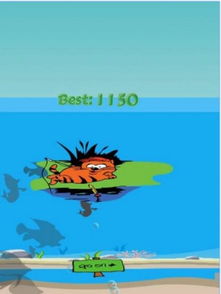Content:
Winter fishing can be a challenging yet rewarding experience for anglers. The cold weather, reduced fish activity, and frozen waters can make it seem like a daunting task. However, with the right techniques and a bit of patience, you can still enjoy successful fishing during the winter months. In this article, we will delve into some essential tips and techniques to help you master winter fishing.
Choose the Right Location
During winter, fish tend to congregate in deeper waters where the temperature is more stable. Look for areas with structures such as rocks, logs, or drop-offs, as these can provide shelter and warmth for the fish. Additionally, focus on areas with a slower current, as fish are less active in cold water.
Select the Appropriate Tackle
Winter fishing requires specialized tackle to ensure your success. Here are some key considerations:

a. Lighter Line: Use a lighter line to reduce the risk of breakage and to be more sensitive to the subtle movements of fish.
b. Strong Hooks: Ensure your hooks are sharp and strong enough to handle the fight of winter fish.
c. Smaller Lures: Fish are less active in cold water, so using smaller lures can be more effective. Try using minnows, jigs, or spinners that mimic the natural movements of small prey.
d. Sensory Lures: Lures with bright colors or glow-in-the-dark features can attract fish in low-light conditions.
Adjust Your Presentation
In winter, fish are less likely to move far to chase after bait. Therefore, it's crucial to adjust your presentation to be more subtle and less aggressive. Here are some tips:
a. Slow Down: Fish are less active, so slow down your retrieve and allow your bait to sink deeper into the water column.
b. Use a Jigging Technique: Jigging can be an effective method in winter fishing. Move your rod tip up and down in short, quick bursts to mimic the natural movements of prey.
c. Work the Bottom: Fish often hold near the bottom during winter. Let your bait sink to the bottom and then slowly retrieve it, allowing it to bounce off the bottom.
Pay Attention to the Weather
Winter fishing can be unpredictable, so it's essential to keep an eye on the weather. Here are some factors to consider:
a. Wind: Wind can affect the way your bait moves through the water. Try to fish on calm days or use a windbreaker to shield your bait from the wind.
b. Temperature: Fish are less active in cold water, so try to fish on warmer days or in areas with warmer water, such as springs or currents.
c. Ice: If you're fishing on a frozen lake, ensure the ice is thick and safe to walk on. Always bring safety gear, such as ice picks and a personal flotation device.
Be Patient and Persistent
Winter fishing can be slow, and it may take time to find active fish. Be patient and persistent, and don't get discouraged if you don't catch anything right away. Remember that fish are less active, so it's important to be patient and wait for the right moment to set the hook.
Dress Appropriately
Winter fishing can be extremely cold, so it's crucial to dress warmly. Wear layers of thermal clothing, a waterproof jacket, insulated gloves, and a hat to protect yourself from the cold. Don't forget to bring a thermos with a warm drink to stay hydrated and energized.
In conclusion, winter fishing can be a challenging but enjoyable experience for anglers. By choosing the right location, selecting appropriate tackle, adjusting your presentation, paying attention to the weather, being patient, and dressing warmly, you can increase your chances of success. So, bundle up, head to your favorite fishing spot, and enjoy the tranquility of winter fishing. Happy fishing!












